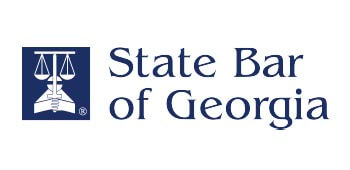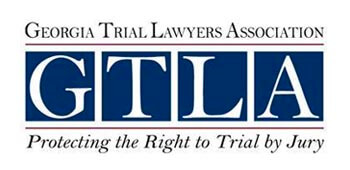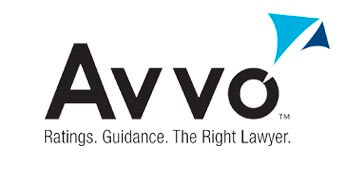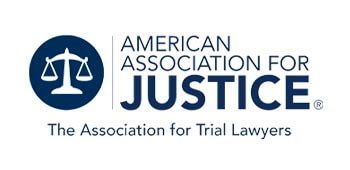Most people assume that if the facts are on their side, the insurance company will be fair. That’s not how it works—not here, not anywhere. In Macon, we’ve seen clear-cut cases undervalued for reasons that have nothing to do with the truth, and everything to do with timing, pressure, and silence. Undervaluing claims isn’t about mistakes—it’s about strategy. Adjusters are trained to find weaknesses, shift blame, and downplay the impact of injuries, especially in smaller towns where they assume fewer legal challenges. This guide breaks down the ways we’ve seen personal injury claims get undervalued in Macon—and what to do to stop it from happening to you.
1. The “Low Initial Offer” Tactic and Why It Works
One of the oldest insurance strategies is to make a quick, lowball offer early in the process. It’s not just a starting point—it’s a test. They want to see if you’ll accept it, especially before your treatment is finished or your costs are fully known. In Macon, this tactic works more often than it should. People want closure, bills are piling up, and when a check shows up for a few thousand dollars, it feels like a lifeline. But once you sign, the claim is closed—even if more serious medical issues come up later.
We’ve seen clients offered $3,000 within days of an accident, only to learn they needed surgery weeks later. The insurer knows you’re vulnerable in that moment. They’re counting on speed, pressure, and the hope you haven’t spoken to a lawyer. That’s why the first offer is almost never the best. It’s designed to look reasonable and generous—but it’s based on minimizing your long-term needs, not addressing them.
2. How Medical Bills Are Challenged and Discounted
Insurance companies don’t just evaluate your bills—they challenge them. We’ve had adjusters in Macon argue that a client’s physical therapy sessions were “excessive,” that diagnostic scans weren’t “medically necessary,” or that a specialist’s charges were too high for the area. They’ll reference internal price guides or argue that the doctor is known for “overbilling.” These aren’t random objections—they’re calculated attempts to drive down your compensation by reducing what’s considered reimbursable.
Even worse, if you didn’t follow up consistently, they’ll claim your condition wasn’t serious. If you saw a chiropractor instead of an orthopedist, they’ll downplay it. Every decision you make about your care becomes part of their valuation. That’s why it’s critical to document everything and work with providers who understand how to write notes that stand up in legal claims. In Macon, where many practices still operate on paper records, clarity and organization matter more than ever.
3. Using Gaps in Treatment to Discredit Your Case
One of the most effective ways insurers lower a claim’s value is by pointing to gaps in your medical care. If you waited more than a few days to see a doctor, missed follow-up appointments, or stopped treatment early, they’ll use it against you. They’ll argue your injuries must not have been serious—or that something else must’ve caused the pain in the meantime. These aren’t logical conclusions, but they’re persuasive in court and devastating in negotiation.
In Middle Georgia, many people try to “tough it out” and only get help when things get worse. But the insurance company won’t care why you delayed. They’ll just say you waited. That’s why we advise clients to start medical care immediately and keep it consistent. If you must pause for any reason—work, childcare, transportation—make sure it’s documented. Without that, a normal life interruption turns into a credibility problem.
4. Misrepresenting What Non-Economic Damages Are “Worth”
Pain and suffering, emotional distress, loss of enjoyment of life—these are real and valid damages under Georgia law. But they don’t come with receipts. That gives insurance companies room to manipulate. We’ve seen adjusters in Macon assign arbitrary values—“$1,500 for inconvenience,” or “double your medical bills”—as if those numbers are set by law. They’re not. These are soft estimates meant to keep payouts low.
The truth is, non-economic damages should reflect the actual impact the injury had on your life. If you couldn’t pick up your child, lost sleep for months, or developed anxiety from chronic pain, those things matter. But unless they’re clearly documented in medical records or personal journals, insurers will argue they’re exaggerated. That’s why we work with clients to show—not just say—how their life changed. A well-prepared claim includes day-to-day limitations, missed experiences, and emotional effects that can be tied directly to the injury. Otherwise, they’ll treat it like a math problem. And you’ll get shortchanged.
5. The Role of Local Bias in Undervaluing Macon Claims
Believe it or not, some adjusters apply different standards in different regions. In bigger cities, they may expect to see lawyers involved, higher bills, or more aggressive negotiations. In Macon, they often assume the opposite: that the client won’t push back, that local doctors charge less, and that juries might award smaller amounts. That regional assumption gets baked into your offer whether you realize it or not.
We’ve reviewed insurer internal memos where Macon-area claims were flagged for “standardized resolution”—meaning they expected to settle cheaply. That’s not law. That’s attitude. And unless someone challenges it with case-specific evidence and legal pressure, the pattern holds. Local firms that are known for settling fast may even get consistently lower offers. At Prine Law Group, we’re known for not taking the first number—and the insurers know it. That alone can move the conversation.
6. How Insurance Companies Misuse Surveillance and Social Media
In Macon, as in the rest of Georgia, it’s legal for insurers to conduct surveillance after a claim is filed. That includes reviewing your social media, driving by your home, and sometimes even hiring someone to follow you. If they see you lifting groceries, attending a social event, or simply walking normally, they may use that footage to argue your injury isn’t as severe as claimed. And while that might sound extreme, it happens regularly.
We’ve had clients whose social posts were used against them—not because they lied, but because insurers framed those posts to cast doubt. A photo at a family birthday? “Looked cheerful, wasn’t suffering.” Walking the dog? “Had mobility.” It doesn’t take much. That’s why we counsel our clients to limit social activity or at least avoid anything that could be taken out of context. A real injury doesn’t disappear in a photo—but insurers don’t care about nuance. They care about leverage.
7. Undervaluing Claims by Overemphasizing Pre-Existing Conditions
If you’ve ever had back pain, knee trouble, or migraines, you can bet the insurance company will bring it up. Even if your current injury is clearly related to the accident, they’ll argue it’s just a flare-up of an old issue. In Macon, where many clients have long medical histories, this tactic is especially common. But Georgia law is clear: if someone’s negligence makes your condition worse, they’re responsible for the added harm.
The key is medical comparison. You have to show how things changed after the accident—more intense, more frequent, more limiting. That often means digging into old records, getting new diagnostics, and having your doctor provide a written opinion. Without that, insurers will blur the lines until nothing looks new. That’s how they undervalue claims—not by denying the injury, but by denying that it’s different.
8. What You Can Do to Protect Your Claim from Being Undervalued
The most important step you can take is early, structured action. Document everything. Seek medical care quickly and consistently. Avoid social media. Don’t give recorded statements. And above all, don’t accept anything—or sign anything—without legal review. In Macon, undervalued claims often look “handled” on the surface. But once the case closes, that’s when the consequences show up. Unpaid bills, lingering pain, lost wages—all locked out by one early mistake.
Working with a personal injury lawyer isn’t about chasing a jackpot. It’s about making sure the value of what happened to you is calculated fairly. At Prine Law Group, we challenge undervaluation every day, because we see how it’s built—quietly, subtly, methodically. And we know how to stop it before it defines your outcome.
If you think your claim is being minimized—or if you’ve been offered less than what your recovery deserves—talk to a personal injury lawyer in Macon who knows how insurers operate. At Prine Law Group, we don’t accept formulas, shortcuts, or lowball logic. We push for the full value because that’s what Georgia law allows—and what real injury demands.





